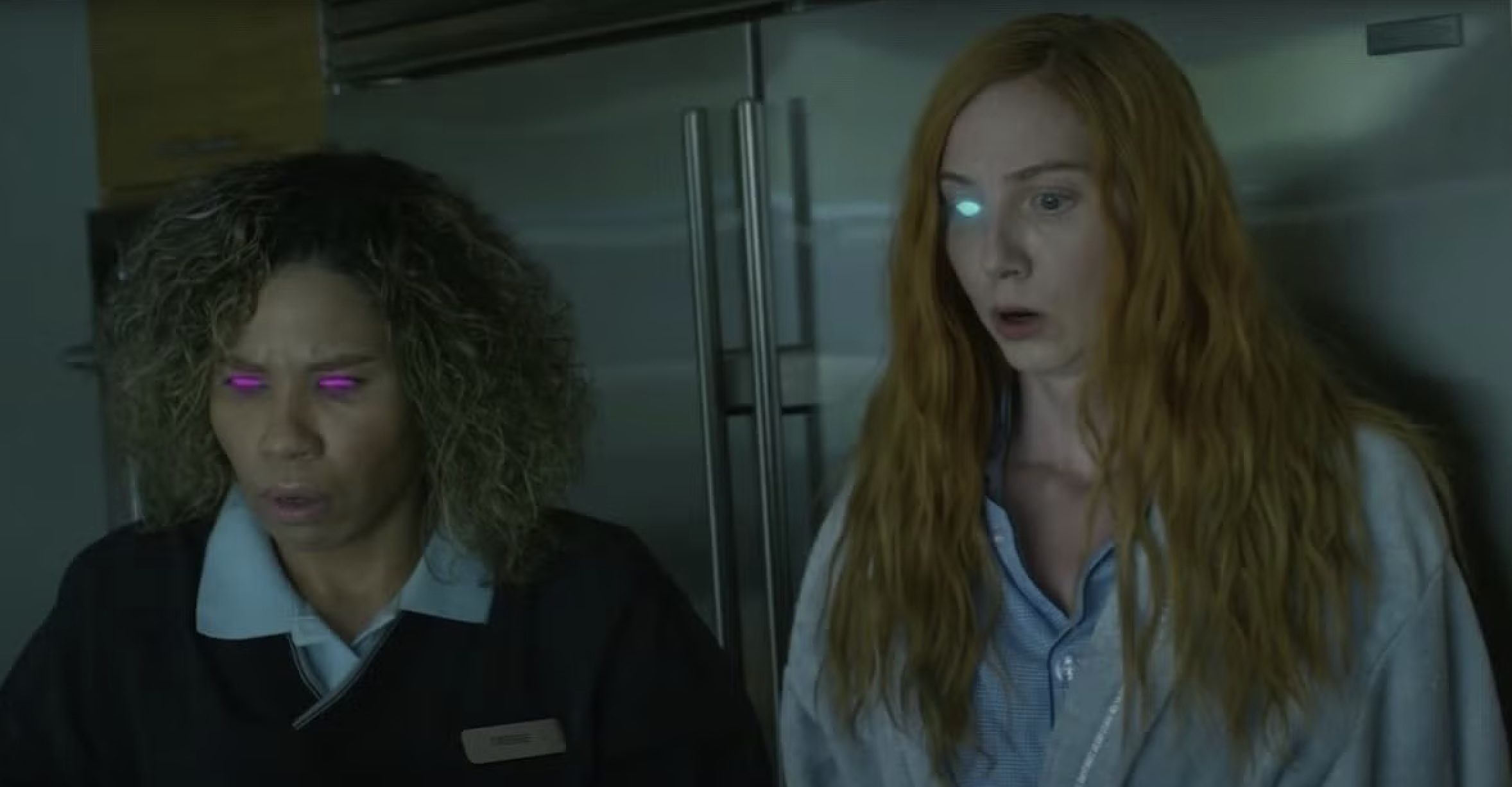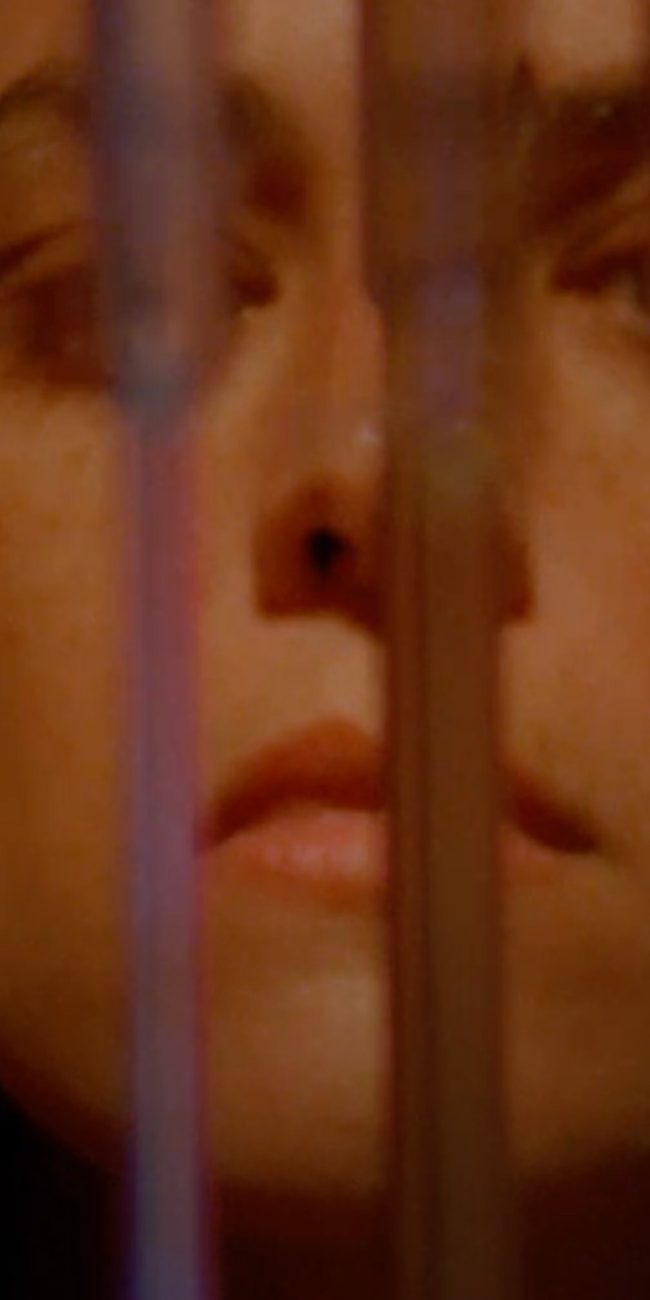THE BECOMERS

(HtN fave Zach Clark is back with his wonderfully weird yet touching alien invasion film The Becomers. The film is out now on VOD via Darkstar Pictures. Seen it? Join the conversation with HtN on our Letterboxd Page.)
Writer/director Zach Clark (Little Sister, White Reindeer) returns with his fifth feature film, The Becomers– a unique pandemic-era allegory with notes of Jonathan Glazer’s Under the Skin, Jim Jarmusch’s Only Lovers Left Alive, and The Coneheads.
When an unnamed alien couple (called X and Y in the script) evacuate their dying planet for the refuge of earth, they are separated, and must enact unimaginable horrors to assimilate to their new surroundings and ultimately reunite. Aided by the universal trauma of the 2020 global pandemic, Clark fits a lot of context into a tight ninety-minute story. The result is an impactful, at times grotesque, occasionally comedic, and wholly romantic depiction of what it takes to regain a sense of normalcy and contentment after losing everything you once knew.
Differentiated only by the color of their pupilless, glowing eyes, X and Y utilize a technology invented by their planet’s scientists, to assimilate on Earth. Unfortunately, in involves stealing the body of a human, at the cost of their life. Worse still, the effect is only temporary, resulting in a string of unwitting deaths in the name of their own survival. They just happen to land in the Chicago area during the uncertain, mask-filled, social-bubble era of our recent past. This timing has its advantages and disadvantages.
The plot unfolds organically, with a voiceover (from Russell Mael of the band Sparks) metering out the events that brought the couple into this predicament. The narrator continues revealing the backstory throughout the present narrative. We learn a bit about the culture of their former lives, and this is where the Coneheads comp comes in. It began with a blind date over “squash steak wraps and black drink” before the couple “connected pods” and made a life together. “There were signs of things to come – the news was strange, scary, yet our little lives were as normal as ever.” They describe a rather familiar set of events that result in their own global crisis, and ultimately, a complete planetary evacuation to save their species.
The unsettling, industrial score of Fritz Myers pops in periodically, to remind us that our protagonists are not of this world. Not that we could forget. The plot conceit provides an opportunity for the actors to completely upend their performances, putting inflections on the wrong words, and making awkward gesticulations when they are attempting to convince another human of their “normalcy”. This also recalls how weird everyone was when we first emerged from lockdown and had to re-learn how to interact with people face-to-face.
We meet our protagonists in several bodies. The blue-eyed alien is our ambassador, hopping from a middle-aged rural hunter to a young pregnant woman (Isabel Alamin) who must hide out in a motel, before settling – for the bulk of the story – inside a suburban “Christian” woman (Molly Plunk) who harbors a few inconvenient secrets.
Meanwhile, the pink-eyed alien is out there, looking to be reunited with their partner. Periodically, Blue Eyes stands outside, gazing at the night sky, and making a sort of mournful bird call to signal to their lost love.
Clark utilizes some very simple-yet-impressive practical and VFX to sell the otherworldly nature of our protagonists. Through a few prosthetics, gadgets, and a LOT of goop, these star-crossed lovers are as endearing as they are alien. Co-producer Joe Swanberg is no stranger to low-budget character studies that are equal parts challenging and captivating. At this point, I would trust anything with his name on it.
Through Blue Eyes’ harrowing, horrifying experiences, Clark dares to explore the morality of survival at the cost of others’ lives. Of course, some of the humans they encounter prove more monstrous than the body-snatchers.
Despite the bleak themes, the overall tone is one of optimism. It’s not saccharin or overly sentimental. It simply acknowledges the fact that even in the face of extinction, love can endure. What happens to those you love is not in your control. But you must not give up on love, because that would be the only true annihilation.
– Jessica Baxter (@tehBaxter)
Darkstar Films; Zach Clark; The Becomers











